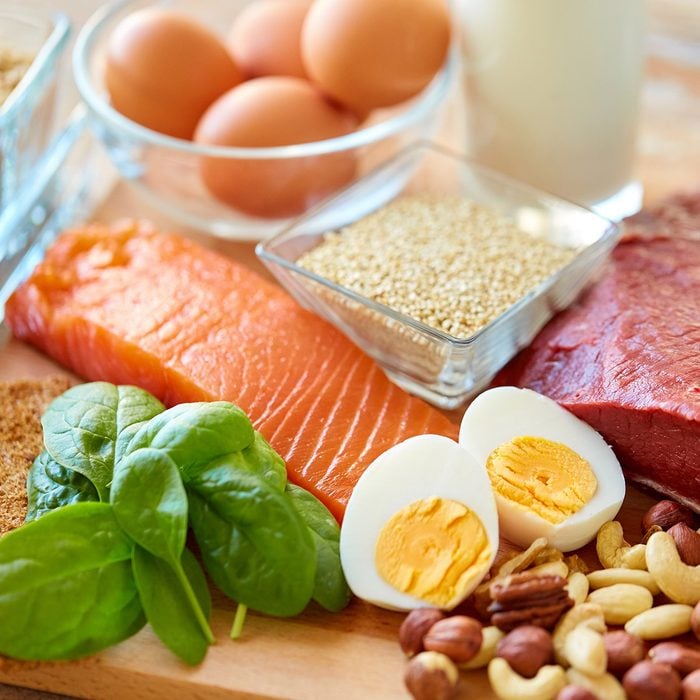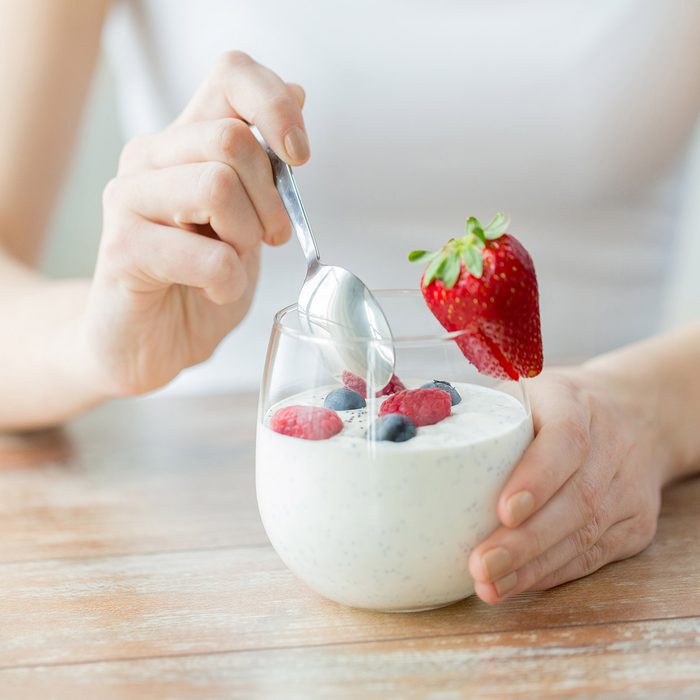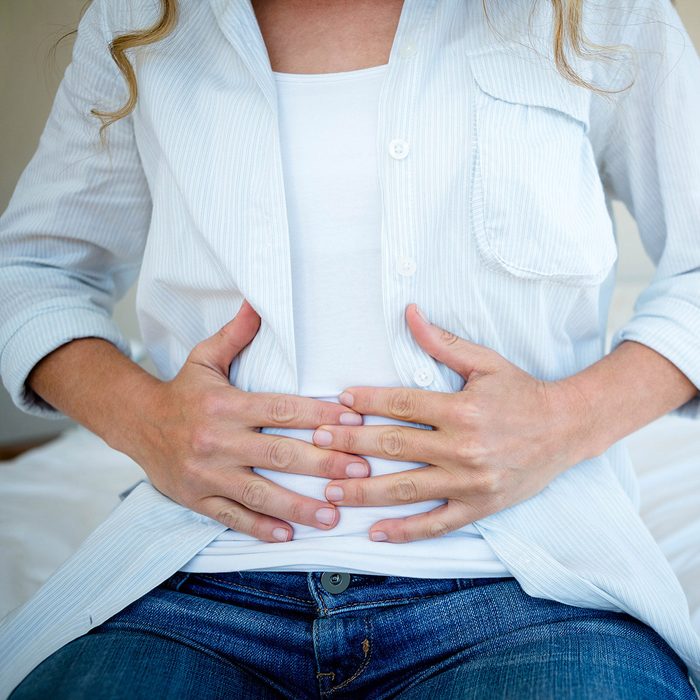
Why we need protein
Protein is a critical part of our diet—we need it to feel full, have energy and boost immunity, among other vital roles.”Protein is made up of amino acids that are the building blocks of body tissues. It’s also involved in the production of enzymes and hormones that help the body to function normally,” says Kaleigh McMordie, a registered dietitian nutritionist.
Why are these amino acids so important? McMordie gives a quick anatomy lesson: There are some amino acids that the body can synthesize, but others, called essential amino acids, we must get through our diet. Animal protein sources, such as meat, fish, milk and eggs, contain all nine essential amino acids while most plant-based protein sources don’t have the full complement of amino acids in the right amounts. “That’s why it is important to include a variety of protein sources in order to get all of the essential amino acids, especially for vegetarians,” McMordie says.

How much protein we need
There are many elements to consider when determining how much protein you need on a daily basis, from how often you workout to your digestive system. That said, there are some overall guidelines. As McMordie explains, “The RDA for protein for adult men and women is around 50 to 62 grams of protein per day. This will typically prevent any protein deficiencies,” she says. Though that’s a rough estimate, CCHE Chief Culinary Officer, Ken Immer notes, “Most often, we hear about recommending protein in specific gram amounts per day.
However, that can be misleading because it should be closely tied to your total calorie needs,” he says. “There is a wide range of recommendations when it comes to the ideal percentage of calories from protein—10 to 35 percent of total calories.” As a general rule, Immer recommends that men aim for 140 grams and women shoot for 110 grams per day, which is more than the RDA, but still within safe limits. But what happens when you go overboard?

You’re in a bad mood
If you keep waking up on the wrong side of the bed, you might want to consider if too much protein is to blame. “When we are eating too much protein, we are often not eating enough carbs, and our brains actually run on sugar from those carbs,” Immer says. So what should you do? The easy solution is to recognize when we are swapping out too many carbs for protein, and to even out the difference. There’s no need to wolf down a pizza to brighten your mood. Instead reach for complex carbohydrates such as fruits, yogurt, brown rice and whole grain oatmeal. On the flip side, here are signs you’re not getting enough protein.

You’ve got brain fog
Feeling fatigued might have you reaching for coffee, but it could be the amount of protein in your system that’s causing your thoughts to wander. “Brain fog, in general, is also a possibility from too much protein, as a sugar deficit for the brain can cause your brain to actually shrink,” Immer explains. Overeating protein means that you might be displacing your carbs. This is risky because, as McMordie says, “carbs are the brain’s main source of energy, and without enough, it will be hard to concentrate.”

You’re acting hangry
When too much time passes between meals, you might feel your upper lip curl and your patience run out. You might call it “hangry,” but a nutritionist might question whether you’ve had a few too many grams of protein in your day. “Without enough carbs, your body’s blood sugar dips, and you don’t produce enough mood-regulating serotonin, causing you to be ‘hangry,'” McMordie says. If you start to feel your fuse run short, McMordie suggests snacking on a side dish like Greek yogurt with berries, string cheese with fruit, or hummus with whole grain crackers, to stabilize your blood sugar and your mood. Here are 9 more benefits of Greek yogurt for your health.

You’re gaining weight
It’s true that having a high-protein diet can satisfy your hunger, but if you go too far over the side of the pyramid, you might find your scale tipping over, too. “That’s especially true if you’re eating excess animal protein or protein shakes. Many protein shakes have added sugar to make them taste better,” McMordie says. “Over time, too many excess calories, no matter from fat, sugar or protein, will cause weight gain.” To shift your meals in a healthier direction, McMordie says to “aim for balanced meals that include lean protein, whole grains, fruit and vegetables.” Instead of just protein for dinner, try one of these healthy and balanced recipes that are ready in 30 minutes.

You’re a little backed up
Having reliable digestion cycles will make you feel healthier overall and minimize stomach issues. However, if your protein intake is too high, you might struggle to stay regular. “If you replace too much of your diet with protein, you may be lacking fiber from grains and vegetables. Fiber is important for digestion and regularity. Without it, you may experience digestive problems and constipation,” McMordie says. Aim for 25 grams of fiber daily from foods like whole grains, vegetables, and fruit. Check out these high fiber foods that will keep things moving.

You’re especially thirsty
Another indicator that you might be eating too much protein is a constant desire for water. In fact, too much protein can cause mild dehydration. “The dehydration is caused by your kidneys working overtime to remove the excess protein as well as the nitrogen waste from metabolizing the protein, so you urinate too much and eventually can wreck your kidneys,” Immer explains. To the rescue? More water, of course, and lightening up on the protein. These are some of the best, and worst, hydrating beverages.

You’ve got dragon breath
A lot of meat doesn’t just give you meat sweats, but a stinky mouth too. “Your brain and body like to run on carbs, so when you don’t eat enough carbs, your body starts to use fat as fuel, producing ketones, which can make your breath smell like nail polish remover,” McMordie says. This can be especially dangerous for diabetics, she adds. Don’t miss these top sources of plant-based protein.
